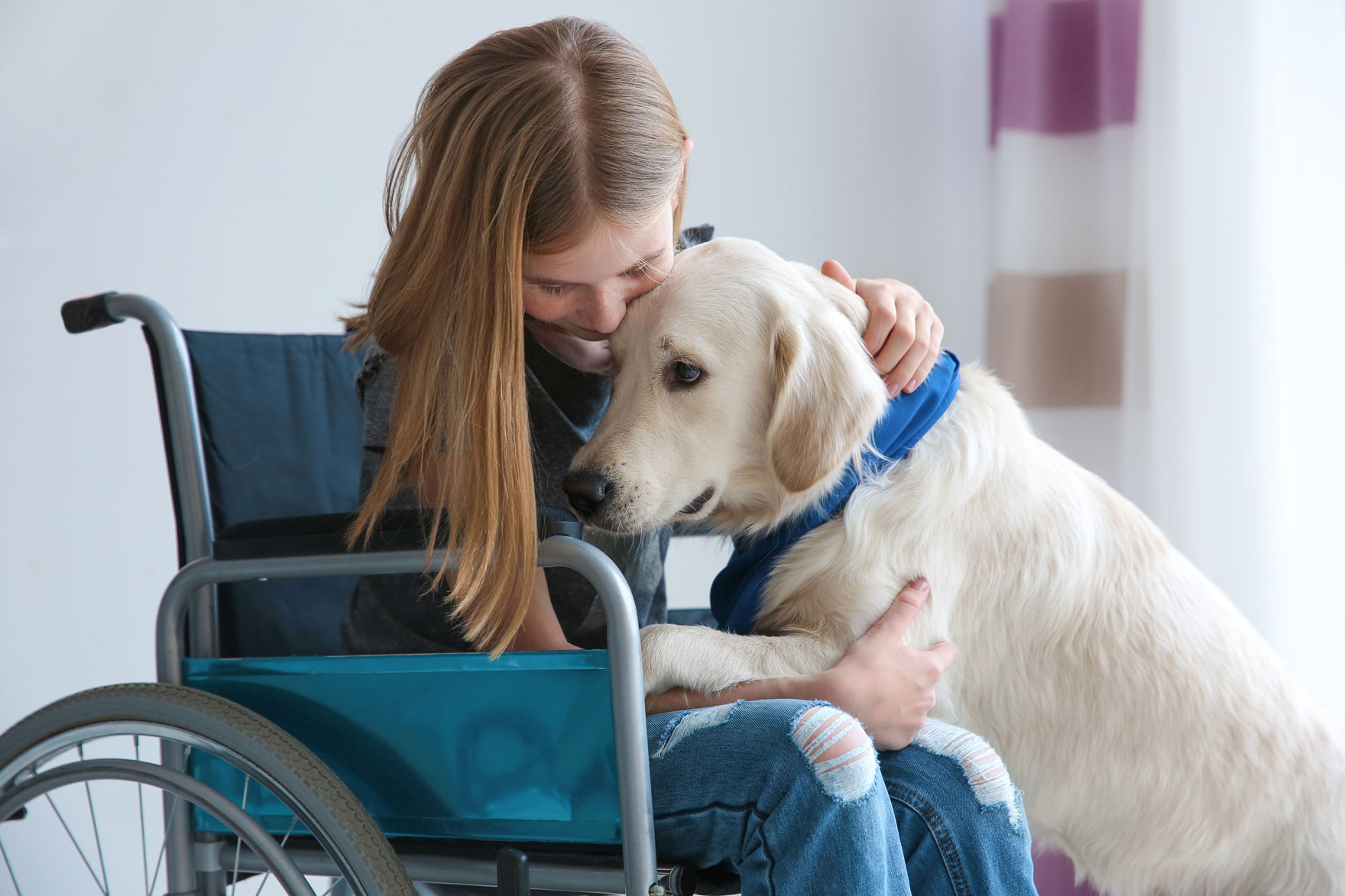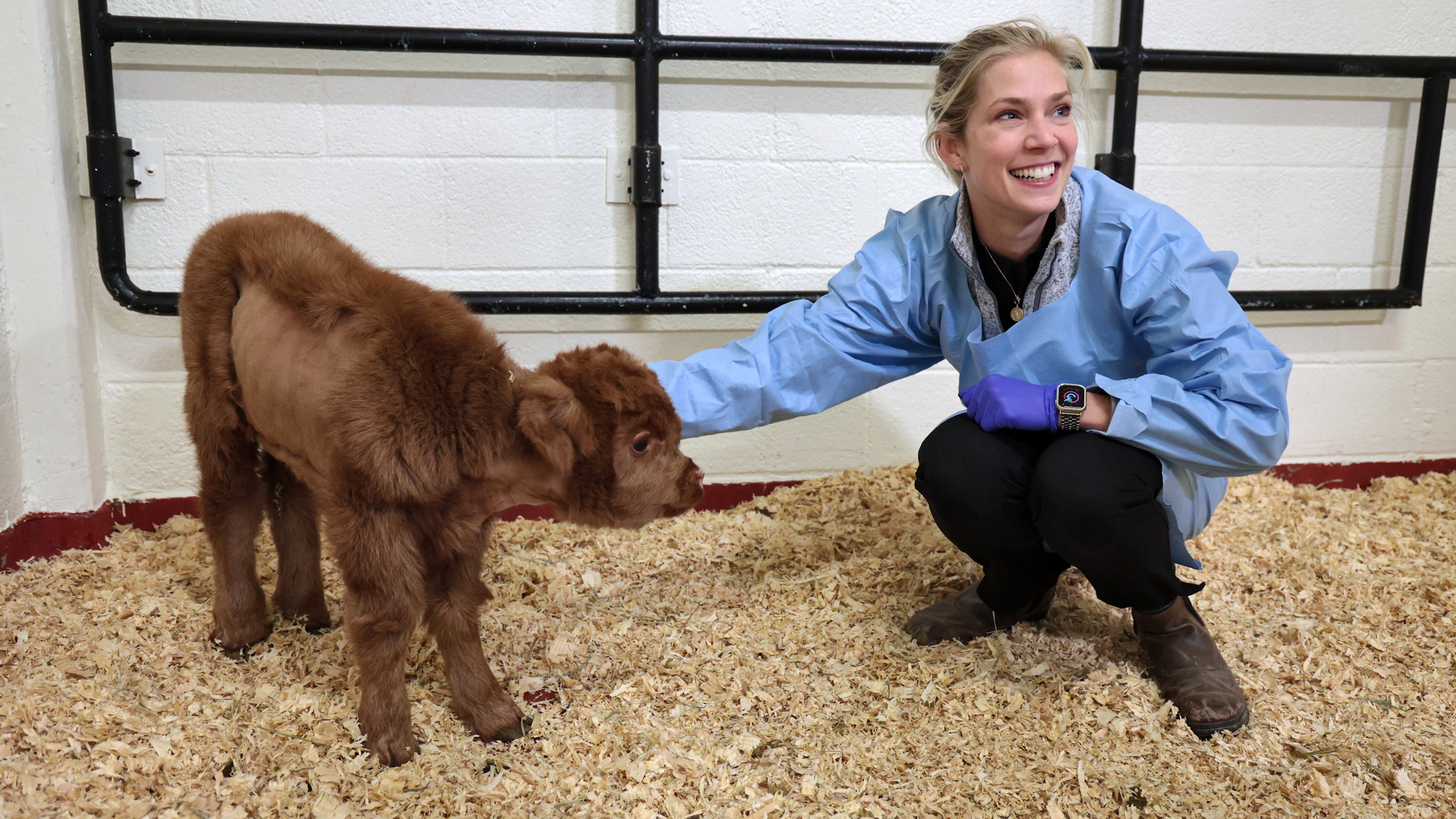CVM Service Dog Research Awarded $1.5 Million NIH Grant

NC State College of Veterinary Medicine’s Margaret Gruen is the recipient of a $1.5 million National Institutes of Health grant for a five-year study into the traits that make certain puppies excellent candidates to become service and companion dogs.
The research project focuses on the emotional and cognitive development of working dog puppies during different growth stages to get a better understanding of how service dog traits develop.

Various assessments, including measuring plasma and salivary cortisol concentrations, as well as heart rate variability during daily activities, will be used with 30 puppies each year for the five years of the research. The study will also look at how different types of training strategies influence development of service dog skills, and characterize the psychological mechanisms service dogs rely on or are hindered by when helping people.
Gruen, CVM assistant professor of behavioral medicine and a board certified veterinary behaviorist, is collaborating with Brian Hare, Duke University professor of evolutionary anthropology, on the project. She completed an internship and residency in veterinary behavior at the CVM and then served on the school’s faculty. Gruen was co-director of Duke’s Canine Cognition Center for two years before returning to the CVM last year as an assistant professor.
Gruen’s research focuses on small animal pain management, cognition and aging, and human-animal interaction, and has extensive expertise on dog behavior and welfare issues. Past research projects have looked into the effectiveness of therapy dogs visiting hospitals and the capabilities of dogs to detect improvised explosive devices.
Service dogs are trained to assist children and adults with an array of physical and mental disabilities, ranging from visual and hearing impairments to immobility and depression. Dogs can be trained to recognize panic and anxiety attacks and retrieve medications and often work with military veterans that have post-traumatic stress disorder.


